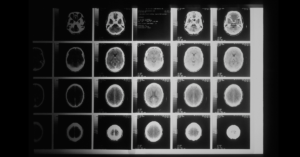Last updated on June 10th, 2024 at 09:54 pm
Brain tumors are a significant health concern, affecting thousands of people each year. While a daunting diagnosis, advancements in treatment and support systems empower individuals to manage the condition and live fulfilling lives. This article sheds light on brain tumors, their impact, and available strategies for navigating this journey.

Understanding Brain Tumors
Brain tumors can be benign (non-cancerous) or malignant (cancerous). Regardless of type, they can disrupt brain function, leading to a range of symptoms. These might include changes in behavior, paralysis, balance issues, vision problems, and difficulty with concentration or communication.
Causes and Risk Factors
Brain tumor development can be influenced by various factors, including:
- Genetics: In some cases, a family history increases the risk.
- Radiation exposure: Exposure to high levels of radiation, for medical reasons or environmental factors, can elevate risk.
- Chemical exposure: Certain chemicals like vinyl chloride and formaldehyde have been linked to brain tumors.
Treatment Options
Brain tumor treatment is often multi-faceted, involving specialists like neurologists, surgeons, oncologists, and therapists. Treatment options may include:
- Surgery: To remove as much of the tumor as possible.
- Radiation therapy: Using targeted radiation to destroy cancer cells.
- Chemotherapy: Medications to kill cancer cells throughout the body.
The specific treatment approach depends on the tumor type, stage, and individual health factors.
The Impact on Mental Health and Cognitive Function
Brain tumors can significantly affect cognitive functions like memory, attention, and language processing. Individuals may experience difficulty concentrating, learning new information, or completing everyday tasks. Mental health can also be impacted, leading to anxiety, depression, and emotional distress.
Living with a Brain Tumor: Strategies for Success
Effective coping mechanisms are essential for managing the cognitive and mental health challenges associated with brain tumors. Here are some key strategies:
- Cognitive Rehabilitation Therapy: Through targeted exercises, this therapy helps individuals regain lost cognitive skills.
- Psychological Support: Counseling and psychotherapy can provide emotional support and help patients and families navigate complex emotions.
- Support Groups: Connecting with others facing similar challenges fosters a sense of belonging and understanding.
Proactive Measures for Brain Health
While preventing brain tumors entirely might not be possible, certain lifestyle choices can potentially reduce risk. Here are some recommendations:
- Maintain a Healthy Diet: Eating nutritious foods can support overall health and well-being.
- Limit Exposure to Harmful Chemicals: Be mindful of chemicals in everyday products and take steps to minimize exposure.
- Reduce Mobile Phone Use: While research is ongoing, limiting mobile phone use may be a way to reduce potential radiation exposure.
Conclusion
Brain tumors present significant challenges, but with early detection, effective treatment, and supportive care, individuals can manage the condition and live fulfilling lives. Raising awareness, adopting a healthy lifestyle, and seeking medical attention at the first sign of symptoms are crucial steps in this journey. Remember, your brain is your most vital organ, and taking care of it is vital for a long and healthy life.